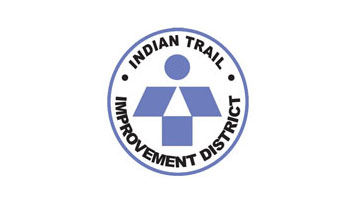The Indian Trail Improvement District is in a battle with weeds and the unauthorized use of its athletic fields, Parks & Recreation Director Kenny Lawrence told the ITID Board of Supervisors on Wednesday, March 23.
Lawrence was giving a presentation on athletic field maintenance and plans for the future.
“The purpose of this presentation is to make you aware of the challenges the Parks & Recreation Department faces on a day-to-day basis and discuss some possible solutions,” Lawrence said. “Throughout the years, the department has faced many challenges with weeds.”
Many of the areas were previously treated with spot spraying, fertilization and aeration, and cutting the fields back twice a week, he said.
“As of today, we have completed 100 percent weed eradication,” Lawrence said. “There is some missing grass due to weeds being eradicated in areas.”
The department also addressed about 60 irrigation issues at Acreage Community Park and completed aeration on the north and south end, overseeded and fertilized both areas, as well as treating for ants. However, the southern end of the park still faces an issue with turf maintenance and the spread of weeds.
Lawrence explained that some are spread by lawnmowers.
“Some are from natural causes, and this is one of the big things that started everything over at the park, was the spread of weeds basically coming from the outside areas into the fields themself,” he said. “Other factors could be wind, wildlife and people.”
He showed the board pictures of the park’s sports fields, showing how weeds surrounding the sports fields are spreading into the fields themselves.
“What happens when the guys are out there cutting, and they pick up the weeds, it spreads from the cuttings,” he said, suggesting a 6-foot mulch border separating the fields.
He said another issue is unauthorized groups using the fields, such as a recent incident with an equestrian riding on the fields, practicing barrel racing.
Another issue he discovered was that the planting of rye grass during the winter actually contributes to weed growth because it pokes holes in the dormant Bermuda grass, allowing the entry of weeds.
Lawrence noted that Palm Beach County has planned the installation of artificial turf on many of its fields, which would reduce maintenance costs and allow the fields to be usable year-round.
Options for ITID include continuing to overseed, install sod or look at putting in artificial turf.
“Each option has its positives and negatives,” Lawrence said. “The overseeding is the most cost-effective way of repairing the damaged fields, but it takes the longest time to come back to life. You’re looking at three to six months on average.”
The option of installing sod is a more expensive but quicker method, he said.
“Most cities will replace their sports turf on a yearly basis,” he said. “We might be able to get three years out of it. What’s becoming the more popular choice is artificial turf. The artificial turf actually has a 20-year lifespan. It has a hefty cost up front, but you do get the longest life out of it, and you have the least amount of maintenance.”
Based on about 150,000 square feet for the three football fields at Acreage Community Park, it would cost about $32,500 for overseeding. New sod would cost about $187,000, and artificial turf would cost about $1.5 million,” Lawrence said, explaining that the artificial turf could be financed, and that over 20 years, it would cost less money.
Meanwhile, Lawrence has appointed four members of his staff to monitor the fields for unauthorized use, and making the unauthorized groups pull permits or moving them to outside parks.
Other issues at the park include deteriorating and unkempt buildings and marl that has built up that needs to be respread so that it does not clog drains.
After some discussion, the board scheduled a meeting for further consideration, tentatively scheduled for April 13 at the Acreage branch library with the Acreage Athletic League invited to participate.








